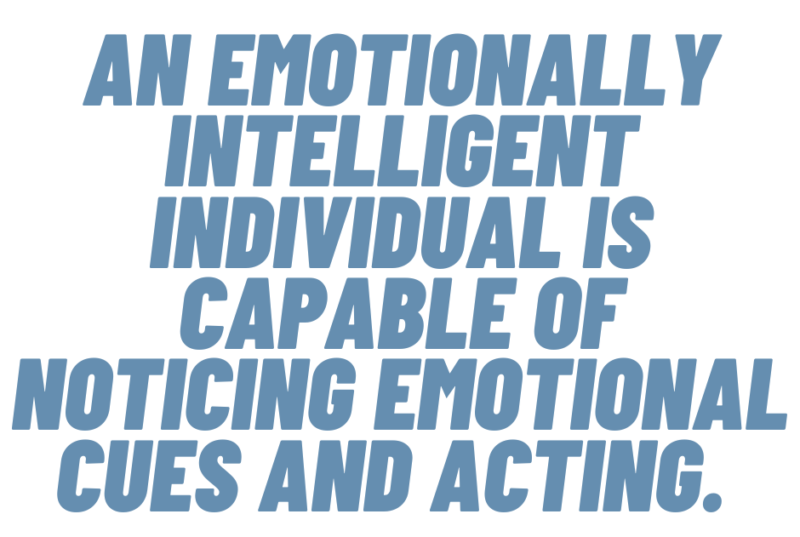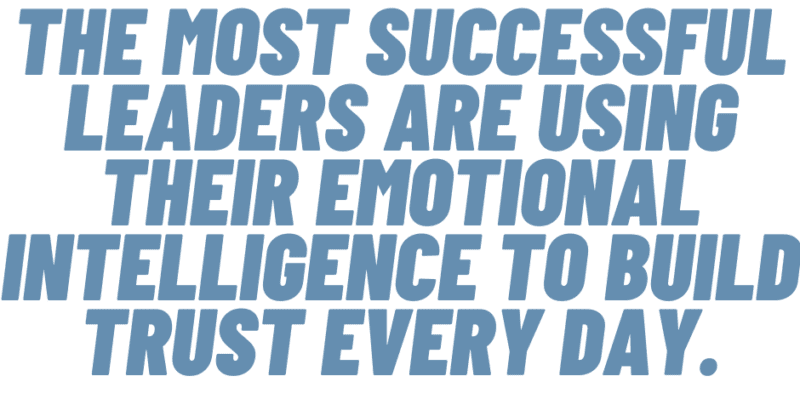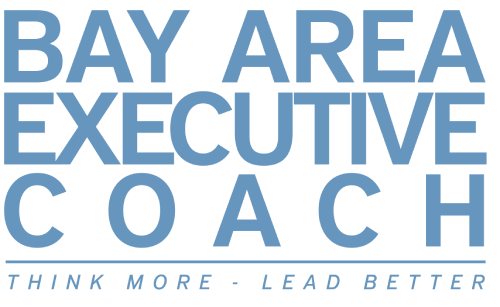You’ve spent years honing the technical skills that got you this far. In fact, those skills have been critical to your success to date. Now you have your eyes on a promotion that would put you in a leadership role.
While you know you’re up for the challenge, you can’t seem to make the leap. You may have a defecit in a highly sought after interpersonal skill area.
Are you emotionally intelligent enough to build trust and lead?
Success in leadership requires more than technical skills. Luckily, emotional intelligence is a skill you can practice and develop. Continue reading to learn the role of emotional intelligence in building trust in the workplace. 
What Is Emotional Intelligence?
There are two basic components to emotional intelligence or EQ. The first is the ability to both recognize, name, and manage your own emotions. The second is the ability to identify the emotions of those around you and influence them.
An emotionally intelligent individual is capable of noticing emotional cues and acting. They can do this without explicitly being told about someone’s emotional state.
What does this look like in professional leadership? Emotionally intelligent leaders can:
- Maintain their composure in times of stress and set the climate for those around them
- Solve problems and conflicts in a thoughtful and reasonable manner
- Practice empathetic perspective taking when interacting with clients or coworkers
Along with IQ and technical skills, EQ is one of the most critical workplace skills.
How Does Emotional Intelligence Build Trust?
The most successful leaders are using their emotional intelligence to build trust every day.
For example, think about the last time you had to go to a more senior staff member for advice or support. Did you feel nervous about approaching them, or did you feel confident they’d have your back?
What if team members aren’t confident that a leader can manage their emotions? They are less likely to go to them with questions or struggles. Thus, communication will suffer and break down, and you may create a culture of secrecy and “walking on eggshells.”
Effective leadership means responding to stressful situations and problems with empathy. You must be able to put yourself in the employee’s shoes, even if they made a mistake. Your goal should be to provide the support they need to prevent future mishaps.
Your team should know you understand their emotions, engage in active listening, and approach problems calmly. As a result, they will be more likely to communicate freely, even before problems arise. This trust means catching issues early, keeping lines of communication open, and maintaining a culture of growth and positivity. 
The Link Between Emotional Intelligence, Trust, and Job Satisfaction
Your emotional intelligence might be the thing that sets you apart from your competition. Individuals with high EQ are more likely to meet the demands of leadership roles, earning higher salaries. The higher your salary, the better your quality of life can be.
Likewise, team members who trust their leaders will work harder to impress and support them. They trust you will notice and remark on their hard work and effort. As a result, your job will become easier. From there, your job satisfaction can only grow as you continue to thrive in your executive role.
How to Boost Your Emotional IQ
One way to boost your emotional intelligence and prepare for career advancement is to pursue coaching. Coaching from Bay Area Executive Coach utilizes a unique blend of assessments and surveys. You’ll spend six months enjoying weekly sessions with a certified executive coach. During the process, you will set actionable goals and reflect on your growth.
Executive coaching is your path to greater confidence, improved communication, and stronger emotional intelligence. Contact us today to begin your journey toward building genuine trust in the workplace.
Emotional Intelligence (EI) is a growing and vital role in today’s workplace and in people’s lives in general, read our article on “Eight Powerful Benefits of Emotional Intelligence in the Workplace.”
Photo copyright: Featured photo is from ©Shutterstock.










